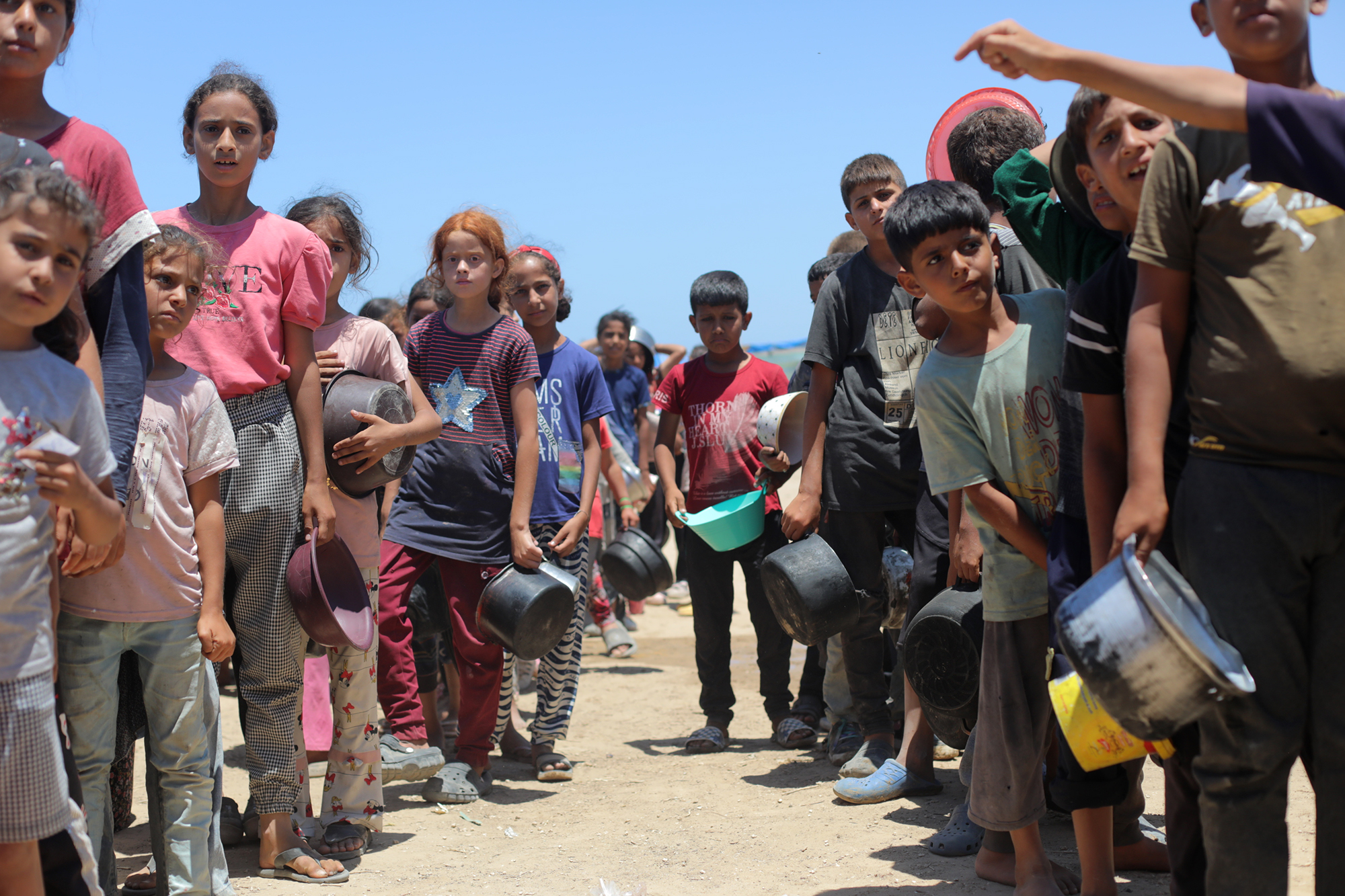The Palestinian Red Crescent has reported the tragic deaths of two paramedics in Rafah, blaming deliberate targeting by Israeli forces. These medics were part of a broader humanitarian effort impeded by the ongoing conflict, raising the total of Red Crescent workers killed since October to 19. The organization condemned the attack on their ambulance, which bore the internationally recognized Red Crescent emblem, in the Tal al-Sultan area of Rafah. The Israeli Army claims that a tank fired upon a 'suspicious vehicle' in the region.
Humanitarian aid flows into Gaza have sharply decreased by 67% since the onset of Israeli assaults on Rafah, as highlighted by the UN Office for the Coordination of Humanitarian Affairs (OCHA). The blockade has prevented essential supplies like food from entering Gaza, exacerbating an already dire situation. According to the OCHA report, a mere 58 trucks of aid reached Gaza daily between May 7 and 28, compared to a prior daily average of 176 trucks. Children in Gaza are particularly suffering from severe malnutrition, with OCHA reporting that 85% of children did not eat for an entire day within a three-day period before the survey.
Save the Children has urgently called for action after reporting the deaths of at least 66 people, including children, in supposed safe areas of Gaza. The ongoing violence has led to severe mental and physical health issues among children, amplifying the humanitarian crisis. The organization criticized Israeli forces' continued attacks despite an International Court of Justice (ICJ) ruling demanding an immediate halt to offensive actions in Rafah. Instead of heeding the ruling, the bombardment has intensified, compounding the suffering of the civilian population.
The situation in Rafah remains critical, with the IDF continuing its offensive and claiming significant territorial control in the buffer zone between Gaza and Egypt, known as the Philadelphia Corridor. This corridor, essential for delivering humanitarian aid, has been a focal point of conflict as Israel seeks to cut off supply routes to Hamas. IDF spokesman Rear Admiral Daniel Hagari cited the discovery of a sophisticated underground tunnel system as part of Israel’s justification for its actions.
Political maneuvers surrounding the conflict have also intensified. Algeria has presented a draft resolution to the UN Security Council calling for an immediate ceasefire. The US, a staunch ally of Israel, has maintained its support but underlined that it does not condone a large-scale ground operation in Rafah.
The Israeli National Security Advisor, Tzaji Hanegbi, has indicated that the offensive will likely extend into 2024, aiming to dismantle Hamas' governance and military capabilities. Hanegbi’s statements underscore Israel’s determination to continue its operations in Rafah, despite mounting international pressure and significant humanitarian fallout. Meanwhile, tensions continue to escalate with various international actors reacting to the conflict in diverse ways.
- The blocking of aid has created an unprecedented crisis for Gaza's population, who rely heavily on external supplies. Hundreds of thousands are now experiencing critical shortages of food, medicine, and other necessities.
- Reports indicate that the border between Gaza and Egypt, a crucial lifeline for humanitarian efforts, has seen no aid flow since May 27 due to a combination of the Israeli military offensive and logistical challenges exacerbated by bad weather.
- Protests and political movements worldwide are growing in response to the humanitarian crisis. In France, the High School Union (USL) and other organizations are calling for school blockades and demonstrations to push for a ceasefire and recognition of the Palestinian state.
- The conflict has a broader geopolitical impact, with countries like the United States and European nations being divided in their support or condemnation of the ongoing violence. This division impacts diplomatic relations and the global perception of the Israeli-Palestinian conflict.






